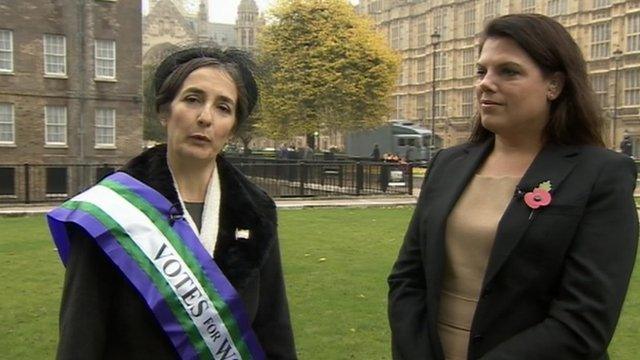How the all-women shortlist still creates controversy
- Published
Labour peer Baroness Gale said there had only been 13 women MPs in Wales in 96 years
All-women shortlists have always been a contentious issue with the Labour party taking on most of the heavy lifting and the subsequent flak.
Only 368 women have been elected to the House of Commons since 1918 - just 7% of all those elected - while Wales has had just 13 female MPs since women won the vote.
Lady Megan Lloyd George became the first female MP in Wales when she won the Anglesey seat for the Liberals in 1929, before later becoming a Labour MP.
Labour first backed all-women shortlists for selecting parliamentary candidates at its UK conference in 1993.
But the issue remains contentious following a row among party members in the Cynon Valley, where the party has decided a new candidate to replace the retiring MP Ann Clwyd must be chosen from a female-only shortlist.

How did all-women shortlists come to be?
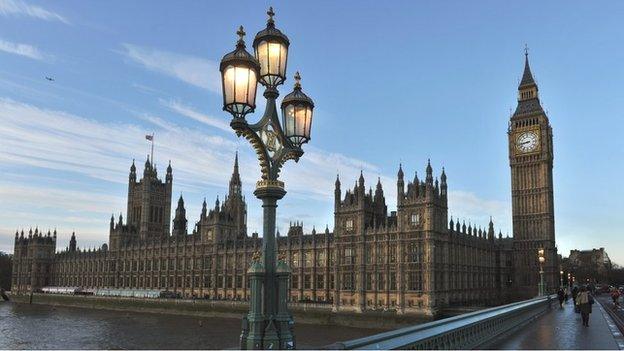
Changes to the Sex Discrimination Act allowed parties to use all-women shortlists
In 1995 the then Labour leader Tony Blair said all-women shortlists would be in place only for the 1997 general election.
In 1996 the policy was judged to be in breach the Sex Discrimination Act 1975, although Labour allowed candidates who had been previously selected under all-women shortlists to retain their positions.
A year later a record 101 Labour women were elected as MPs.
Later the Sex Discrimination Act 2002 was brought in to allow political parties to use all-women shortlists to select candidates for parliamentary, European, Scottish Parliament, Welsh Assembly and most local government elections.

What is the situation for Welsh MPs?
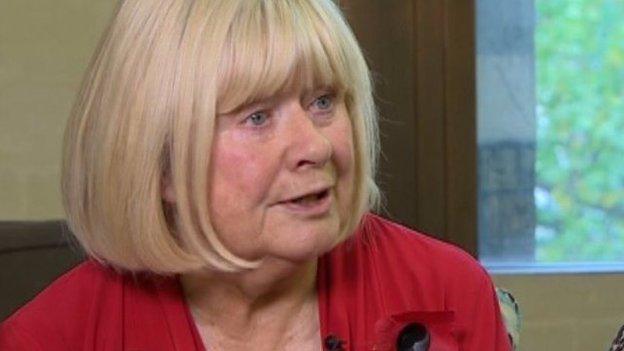
An all-women shortlist will be used to replace Ann Clwyd who is standing down
Labour currently has six Welsh female MPs and has said it will choose two more candidates for Wales for the 2015 general election using all-women shortlists.
Its Swansea East and Cynon Valley selections, where current Labour MPs Sian James and Ann Clwyd are standing down, will be drawn from female-only lists.
That means at least half of its 18 new candidates in 2015 will be women, with Montgomeryshire still to be selected.
All-women shortlists have so far been applied in Aberconwy, Cardiff Central, Cardiff North, Carmarthen West, South Pembrokeshire, Monmouth and Gower constituencies.

What about the Welsh assembly?
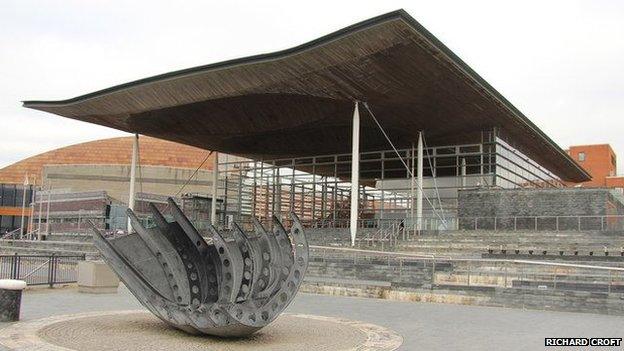
There are currently 15 women Labour AMs sitting in the Senedd
There has been greater gender balance within the Welsh assembly, and currently 58% of AMs are men compared with 42% of women.
For the first elections to the National Assembly for Wales in 1999, Labour opted for "a twinning policy" to enforce a gender balance.
Under this policy, neighbouring constituencies were "twinned", choosing one man and one woman candidate between them to guarantee equal representation.
But it was controversial with Welsh Labour delegates backing it by a 3% majority on a card vote after a heated and tense debate.
The policy was then challenged by Labour activists in the High Court.
In the 1999 Assembly elections, 15 of the 28 Labour AMs elected were women.
There are currently 15 female Welsh Labour AMs sitting in the assembly.

Have all-women shortlists been supported in Wales?
Carwyn Jones says Labour has always fought to ensure elected bodies reflect the country as a whole
It caused a bitter dispute within the party in Blaenau Gwent during the 2005 general election.
It resulted in the then Labour AM Peter Law standing as an independent and defeating the Labour candidate by a significant margin.
The party later apologised for over-riding local wishes.
In March this year, the Welsh Labour conference voted unanimously to aim to make women candidates in half of its winnable seats at the 2017 council elections.
But the party stressed it would not impose all-women shortlists where a sitting male councillor wanted to stand again.
On Monday, First Minister Carwyn Jones backed the all-women Labour shortlist for the Cynon Valley constituency at the 2015 general election when Ann Clwyd retires.

What about the other parties?
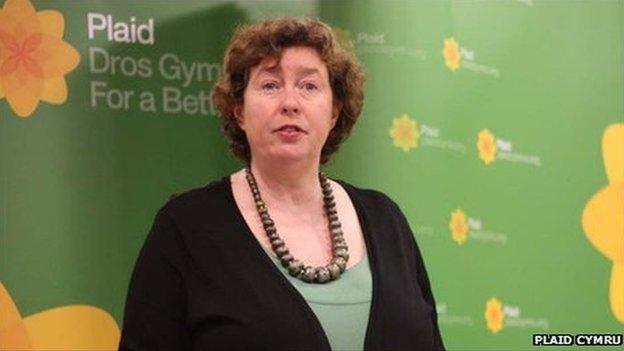
Former Plaid Cymru AM Helen Mary Jones urged the party to consider all-women shortlists back in 2012
Parties are currently choosing candidates for the 2015 general election and 2016 assembly election.
Plaid Cymru said local parties would decide the candidates for council, assembly and parliamentary elections but a gender balance was required for the top two positions on its assembly regional list.
The Welsh Liberal Democrats rejected all-women shortlists, but ruled out all-male shortlists for Westminster and assembly elections.
The Welsh Conservatives have no specific mechanisms in place to increase the number of women selected.
- Published11 March 2012
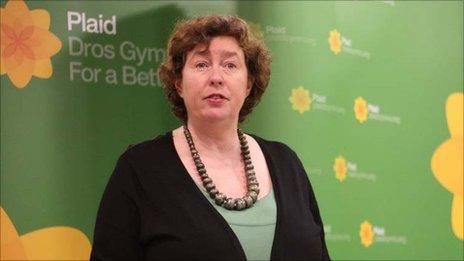
- Published9 April 2014
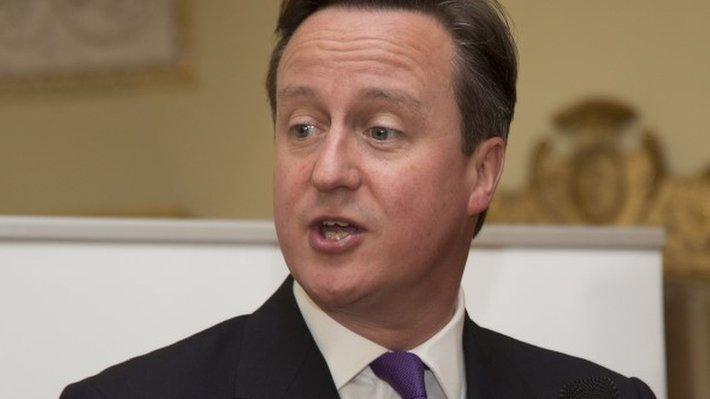
- Published10 February 2014
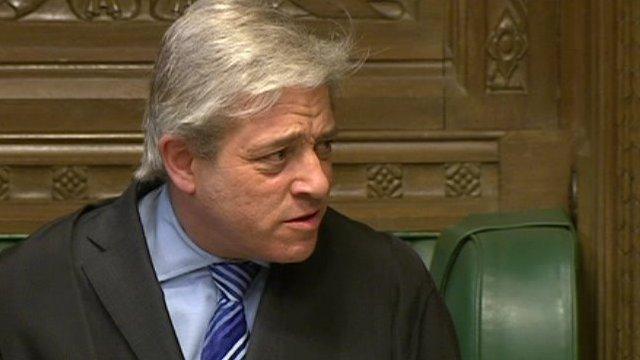
- Published9 April 2013
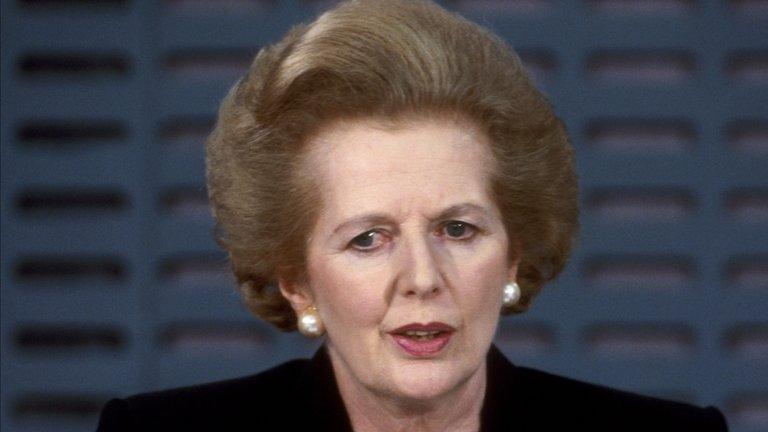
- Published24 October 2012
